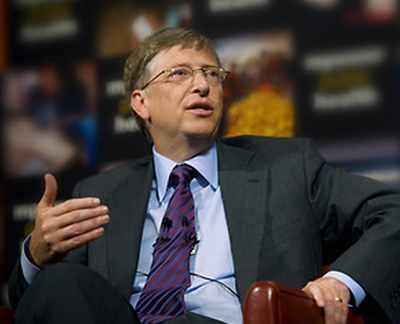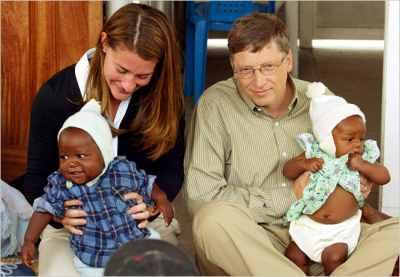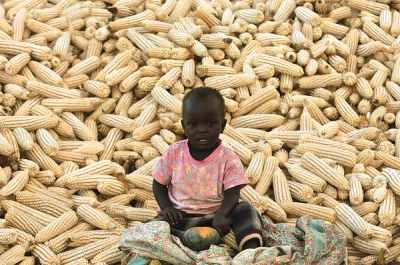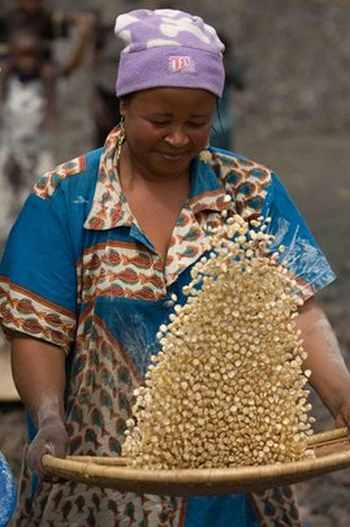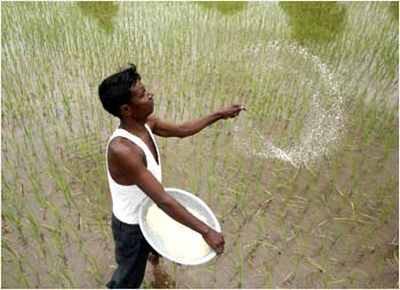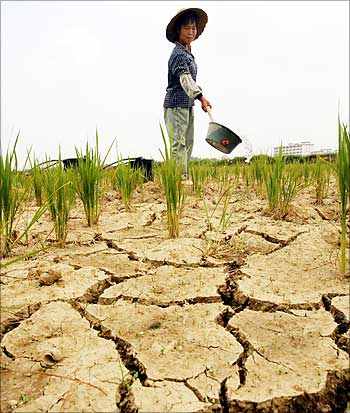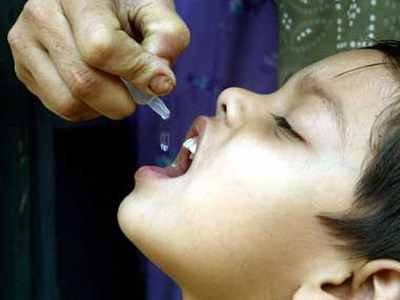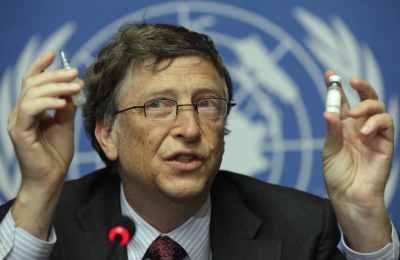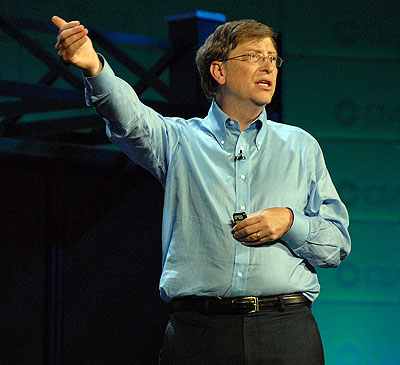 | « Back to article | Print this article |
Bill Gates on what must be done to help the world's poor
Bill Gates, co-chair of the Bill & Melinda Gates Foundation, challenged global leaders in his fourth annual letter to invest in innovations that are accelerating progress against poverty, or risk a future in which millions needlessly starve.
Every year, Bill Gates, pens down personal account of his priorities in the form of a 'Letter' dedicated to the cause of humanity. These letters take stock on progress made and lessons learned in his efforts to reduce extreme poverty and improve global health.
This year, the letter describes remarkable progress in the developing world and makes the case to continue investing in efforts to make a difference for millions of poor people around the world.
For Rediff Realtime News, click here
Click NEXT to read more...
Bill Gates on what must be done to help the world's poor
Over the past 50 years, the percentage of the population living in poverty has reduced from 40 per cent to 15 per cent. Gates believes it is possible to continue on this path of progress through innovative investments.
He suggests one can focus on areas like helping small farmers grow more food, as this is the best way to fight hunger and poverty among poor.
"The world faces a choice. By spending a relatively little amount of money on proven solutions, we can help poor farmers feed themselves and their families and continue writing the story of a steadily more equitable world," Gates wrote in the letter.
"Or we can decide to tolerate a very different world in which one in seven people needlessly live on the edge of starvation."
Click NEXT to read more...
Bill Gates on what must be done to help the world's poor
Gates insisted that modest investment can make a huge difference. For instance, one can look at innovative ways of fighting plant disease, treating people with AIDS, or getting a polio vaccine for a child in a remote area.
"Our guiding principles for those investments are the same as for agriculture: innovation is the means, and equity is the end goal," said Gates drawing on a number of successes to illustrate the progress.
Difficult economic times are causing leaders and people around the world to question their aid commitments, but Gates believes it's more important than ever to stick to those contributions. "This will help people build self-sufficiency and overcome the need for aid."
Click NEXT to read more...
Bill Gates on what must be done to help the world's poor
In line with his report delivered at the G20 Summit in Cannes, France last November, Gates underscores the importance of new resources and expertise that are rapidly growing in countries like Brazil, China, and India.
He reflects on the expanding role of the private sector in improving the lives of the poor, and the importance of smart partnerships that can help poor countries move beyond aid.
The letter also outlines other key priorities for the foundation in 2012, including helping nations to eradicate polio, supporting the fight against AIDS, improving education in the United States, and improving the health of mothers and children through family planning.
Click NEXT to read more...
Bill Gates on what must be done to help the world's poor
Gates also announced the first Gates Vaccine Innovation Award recipient in his letter, praising the innovative work of health official Dr Asm Amjad Hossain, for his success in increasing immunisation rates in two Bangladesh districts by registering pregnant women.
"While it may seem like a small innovation, it shows how looking at old problems in new ways can make a profound difference," says Gates.
He cited the success of India, which recently marked its first year without identifying a single case of wild poliovirus.
"It was only three years ago that India had more polio cases than any other nation. This is a major milestone for global polio eradication and for children's health worldwide."
Click NEXT to read more...
Bill Gates on what must be done to help the world's poor
Gates unveiled his letter in South London at a meeting with students at a high school, where he thanked the students and hundreds of others from around the globe for submitting their own letters.
He went on to discuss its content with a gathering of international development students at the London School of Economics, hosted by the Global Poverty Project at the launch of their new UK global poverty ambassadors programme.
Guided by the belief that every life has equal value, the Bill & Melinda Gates Foundation works to help all people lead healthy, productive lives.
Click NEXT to read more...
Bill Gates on what must be done to help the world's poor
Here is an excerpt from the 4th annual letter by Bill Gates:
Farming is a great example of something critical to the poor that gets very little attention in rich countries. Back in the 19th century, the majority of people in the United States worked in agriculture.
Now less than 2 per cent of the workforce is involved in farming, and less than 15 per cent of US consumer spending goes to food.
Also, farming issues rarely make the news. The exceptions are when food is contaminated, when government subsidies are being debated, or when there is a famine like the recent one in Africa.
Despite the rich world's distance from farming, food-related issues are important for all of us.
Click NEXT to read more...
Bill Gates on what must be done to help the world's poor
In the 1960s and 1970s, when I was in high school, people were worried that we simply couldn't grow enough food to feed everyone in the world.
A popular book that came out in 1968, The Population Bomb by Paul Ehrlich, began with the statement: "The battle to feed all of humanity is over. In the 1970s hundreds of millions of people will starve to death in spite of any crash programs embarked upon now. At this late date nothing can prevent a substantial increase in the world death rate..."
Fortunately, due to large part to the Green Revolution, this dire prediction was wrong.
But the world's success in warding off famine led to complacency. Over time, governments in both developed and developing countries focused less on agriculture.
Click NEXT to read more...
Bill Gates on what must be done to help the world's poor
Agricultural aid fell from 17 per cent from rich countries in 1987 to just 4 per cent in 2006.
In the past 10 years, the demand for food has gone up because of population growth and economic development -- as people get richer, they tend to eat more meat, which indirectly raises demand for grain. While, supply growth has not kept up, leading to higher prices.
Meanwhile, the threat of climate change is becoming clearer. Preliminary studies show that the rise in global temperature alone could reduce the productivity of the main crops by over 25 per cent.
Click NEXT to read more...
Bill Gates on what must be done to help the world's poor
Climate change will also increase the number of droughts and floods that can wipe out an entire season of crops.
More and more people are raising familiar alarms about whether the world will be able to support itself in the future, as the population heads towards a projected 9.7 billion by 2050.
I believe these new dire predictions can be wrong, too. We can help poor farmers sustainably increase their productivity so they can feed themselves and their families.
By doing so, they will contribute to the global food security. But that will happen only if we prioritise agricultural innovation.
Click NEXT to read more...
Bill Gates on what must be done to help the world's poor
When I was in India in March I met with about 20 rice farmers who had recently switched to a new rice seed called Swarna-Sub1, which is both very productive and can survive in flooded fields.
Their rice fields get flooded every three to four years, and in the past flood years they ended up with almost no food to eat.
Now, these farmers can feed their families no matter the weather. Currently, 4 million tonnes of rice is lost to flooding every year in Bangladesh and India.
But as farmers in the region adopt Swarna-Sub1, they will grow enough extra rice to feed 30 million people.
Click NEXT to read more...
Bill Gates on what must be done to help the world's poor
Fortunately, there are reasons to believe that the chronic underfunding of research in agriculture is starting to change -- and that there will be more breakthroughs like Swarna-Sub1.
One approach that looks promising is innovative partnerships with private companies where the companies donate proprietary assets in which they have invested hundreds of millions of dollars, as well as their expertise, to help make appropriate varieties available royalty-free to poor farmers.
Other key partners are rapidly growing in countries like Brazil and China, which bring not only new resources but also build the experience in helping poor farmers at home.
Brazil is a leader in soybeans, cassava, and tropical soils. China is a leader in rice and farmer education. This year the foundation entered into model agreements to work with both countries.
Click NEXT to read more...
Bill Gates on what must be done to help the world's poor
The foundation's top priority remains working towards complete eradication of polio, perhaps the best-known vaccine-preventable disease in the world.
I spend a lot of my time learning about the disease and being an advocate for doing what it takes to end polio. At the start of 2011, poliovirus was still spreading in three areas: 10 countries in Africa (with viruses that originated primarily in Nigeria), Afghanistan and Pakistan and India.
Now India has reached a huge milestone. The country had only one case in 2011, which was recorded on January 13 in West Bengal. So on January 13, 2012, India celebrated its first year of being polio free.
The challenge in India was mind-boggling. It's hard to imagine how you would design a polio campaign that reached every Indian child. More than a billion people live in the country.
Click NEXT to read more...
Bill Gates on what must be done to help the world's poor
Massive numbers of families migrate constantly to find work. One of the largest states, Bihar, is flood-prone. In some cases, the vaccine didn't work as well as it had in other parts of the world, probably because of malnourishment, diarrhoea and other illnesses.
But the government kept raising awareness and improving the quality of its campaigns, even in the toughest locations. The Indian government deserves special credit for this achievement.
In 2012 we need to keep India and all the other places that are polio free from getting re-infected.
The biggest focus for 2012 will be improving the polio vaccination campaigns in Nigeria, Chad, the Democratic Republic of Congo, Afghanistan and Pakistan.
Click NEXT to read more...
Bill Gates on what must be done to help the world's poor
I recently visited Chad and Nigeria to meet with leaders there, and it's clear that we have high-level political support. Still, deploying high-quality vaccination teams and educating parents so that every single child is vaccinated will take a lot of work.
In Nigeria the biggest problems are low-quality campaigns and the fact that some parents don't trust that the vaccine is safe. In Pakistan these problems are compounded by the security situation.
It will be challenging to continue raising the approximately $1-billion every year that takes to run the global campaign.
Last year the United States, the United Kingdom, Australia, Japan, Canada, Norway, Saudi Arabia, the Crown Prince of Abu Dhabi, and Rotary International provided substantial contributions.
Rotary continues to be the heart and soul of polio eradication, supporting the program directly while also taking on a larger role in encouraging other donors to give more.
Click NEXT to read more...
Bill Gates on what must be done to help the world's poor
A new partner, FC Barcelona, is spreading the message of polio eradication to millions of football fans across the globe.
We are continuing to invest in studies about how polio spreads and trying to model where we need to intensify the vaccination campaigns. We are also working on new vaccines.
Finding every last poliovirus requires good tools along with trained and motivated workers in every single country.
These are enormous obstacles, but the success of the polio eradication program in India and 90 other countries gives me confidence that we can triumph in these final challenging countries and end polio once and for all.
